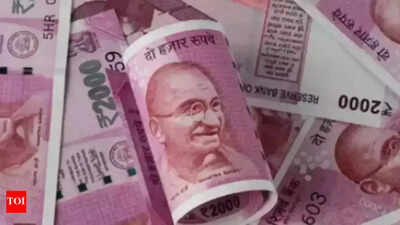The widening grip of intolerance

Navigating the cultural landscape these days is akin to treading a minefield. It is becoming evident that the most innocuous creative expressions can blow up to become heated controversies. Over the past week in Kerala, everything from a character named Janaki in a film to Zumba dance performances by school students has angered some section or the other. Religion happens to be the common thread running through most of these controversies.
What’s in a name?
Though the regional office of the Central Board of Film Certification (CBFC) cleared the film Janaki v/s State of Kerala starring Union Minister Suresh Gopi, the CBFC headquarters in Mumbai demanded a change in the title as well as of the name of the titular character, Janaki, which is another name for goddess Sita. They told the filmmakers through unofficial channels that a survivor of sexual violence cannot be named after Sita. The makers of another film, Token Number, were also forced to change the name of a character from Janaki to Jayanthi after the Board objected to a character with that name having a relationship with a man named Abraham.
Given such arbitrary directives, it will likely become impossible to use a common name in a film’s title or for a character. These instances show a disturbing tendency of the CBFC taking over the duties of the ‘hurt sentiments’ group and widening the scope of censorship. The Kerala High Court has pulled up the CBFC, while film bodies in Kerala are up in arms against the body.
Questioning moral values
While these two controversies raged on, joyful videos of school students of all ages dancing together in Zumba classes filled social media timelines in the State. The Kerala government launched Zumba sessions in schools and colleges this academic year as a part of its efforts to reduce stress and channelise the interests and energy of students away from drugs into positive alternatives.
However, even this made a section of people unhappy. Ultra conservative Islamist groups including Wisdom Islamic Organisation and the Sunni Yuvajana Sangham, the youth wing of the Samastha Kerala Jamiyyathul Ulama, opposed the plan, branding the aerobic dance workout practice as a degradation of “moral values” and a violation of Islamic religious values. Some clerics claimed that students will be made to wear “skimpy clothes” while performing Zumba even though the students were seen wearing their school uniforms in all the videos on social media.
Such opposition to a relaxing workout revealed the misogyny of the clerics as well as their fears about the inter-mingling of genders. In the past, citing religious reasons, some of these Islamic organisations have opposed the government’s decision to introduce a gender-neutral uniform in schools and to do away with separate benches for girls and boys.
The ruling Left Democratic Front (LDF) government has refused to back down on its Zumba plan. The General Education Minister, V. Sivankutty, said that the stand taken by these groups will only help fuel majority communalism. The CPI(M) General Secretary, M.A. Baby, who as the State Education Minister in 2008 faced a controversy over a rationalist lesson in a textbook, said that religious organisations can comment on educational issues, but they cannot dictate terms.
Curiously, the Bharatiya Vichara Kendram, a Sangh Parivar think tank, also criticised the State government for promoting “foreign practices” such as Zumba. It claimed that the government’s agenda was to sideline yoga trainers.
Beyond the cultural sphere, the campaigns of orthodox Islamic groups against vaccination have had dire consequences. Two days ago, a one-year-old child died of jaundice in Malappuram after his parents, both practitioners of alternative medicine, allegedly denied him vaccination and treatment. They also buried the child in mysterious circumstances.
Worrying trend
In Kerala, there are an increasing number of fundamentalist voices from different sides of the religious spectrum. Their narrow diktats on creative expressions as well as on issues that are beyond the boundaries of their understanding on religion does not augur well for a State that takes pride in its general progressive, secular outlook. The government and civil society need to push back with all vigour to isolate such intolerant voices.
Published – July 01, 2025 01:28 am IST







